Staff
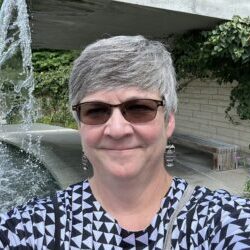 Erin Meier is Director of Green Lands Blue Waters. Previously, Erin served for 14 years as Executive Director of the University of Minnesota Southeast Regional Sustainable Development Partnership. She has over 20 years of experience and training in sustainable agriculture, local food systems, food access, natural resource conservation, clean energy, community engagement and development, and facilitating cross-sector work groups and networks. Erin holds an MS in Sustainable Agriculture from Iowa State University with an emphasis on external costs and behavioral economics and is a geographer at heart with a BS in Geography from the University of Illinois and past experience as a cartographer and geographic information systems analyst.
Erin Meier is Director of Green Lands Blue Waters. Previously, Erin served for 14 years as Executive Director of the University of Minnesota Southeast Regional Sustainable Development Partnership. She has over 20 years of experience and training in sustainable agriculture, local food systems, food access, natural resource conservation, clean energy, community engagement and development, and facilitating cross-sector work groups and networks. Erin holds an MS in Sustainable Agriculture from Iowa State University with an emphasis on external costs and behavioral economics and is a geographer at heart with a BS in Geography from the University of Illinois and past experience as a cartographer and geographic information systems analyst.
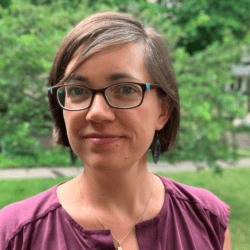 Aaron Reser is the Associate Director for Green Lands Blue Waters (GLBW). Based at the Minnesota Institute for Sustainable Agriculture, GLBW works with a wide network of partners across the Upper Midwest to increase continuous living cover on the agricultural landscape. In the past, Aaron led GLBW’s Watershed Initiative work and was the lead staff on early supply chain development work with Kernza™ perennial grain. Her expertise is in building and strengthening collaborative networks, linking key elements and individuals along the path from farm to market and illuminating all of the systems-support pieces that underlay that path. She brings 15 years experience in a whole-systems approach to building regional food systems. Aaron has an MPA from the UMN Humphrey School of Public Affairs.
Aaron Reser is the Associate Director for Green Lands Blue Waters (GLBW). Based at the Minnesota Institute for Sustainable Agriculture, GLBW works with a wide network of partners across the Upper Midwest to increase continuous living cover on the agricultural landscape. In the past, Aaron led GLBW’s Watershed Initiative work and was the lead staff on early supply chain development work with Kernza™ perennial grain. Her expertise is in building and strengthening collaborative networks, linking key elements and individuals along the path from farm to market and illuminating all of the systems-support pieces that underlay that path. She brings 15 years experience in a whole-systems approach to building regional food systems. Aaron has an MPA from the UMN Humphrey School of Public Affairs.
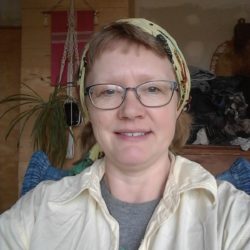 Jane Grimsbo Jewett is Associate Director and coordinator of the Information Exchange program at the Minnesota Institute for Sustainable Agriculture, University of Minnesota. She works with Green Lands Blue Waters on matters related to grazing and integration of livestock into cropping systems, and is the lead staff for the Midwest Perennial Forage Working Group. Jane has a B.S. in Agronomy and M.S. in Plant Breeding from the University of Minnesota. She owns and operates a small, diversified livestock farm near Palisade, MN and is involved with farmers’ markets and local food systems work regionally in northeastern Minnesota and at the state level.
Jane Grimsbo Jewett is Associate Director and coordinator of the Information Exchange program at the Minnesota Institute for Sustainable Agriculture, University of Minnesota. She works with Green Lands Blue Waters on matters related to grazing and integration of livestock into cropping systems, and is the lead staff for the Midwest Perennial Forage Working Group. Jane has a B.S. in Agronomy and M.S. in Plant Breeding from the University of Minnesota. She owns and operates a small, diversified livestock farm near Palisade, MN and is involved with farmers’ markets and local food systems work regionally in northeastern Minnesota and at the state level.
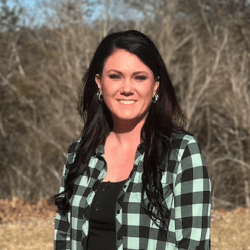 Sarah Svoboda is the Communications Specialist for Green Lands Blue Waters. She brings over 15 years of diverse experience in communications, marketing, tourism, event planning, web design, business management, relations, and community engagement. Throughout her career, she has collaborated with a wide range of organizations in various roles, showcasing her adaptability and expertise. Most recently, Sarah contributed to the resilient communities work group and served on the board for the Regional Sustainable Development Partnership, following her tenure with the U of M Extension. With a deep-rooted passion for rural communities, stemming from her upbringing in a small town in Southeast Minnesota that she later was the tourism director for, she is dedicated to utilizing her skills to help showcase the hard work that GLBW has and continues to accomplish with their partners.
Sarah Svoboda is the Communications Specialist for Green Lands Blue Waters. She brings over 15 years of diverse experience in communications, marketing, tourism, event planning, web design, business management, relations, and community engagement. Throughout her career, she has collaborated with a wide range of organizations in various roles, showcasing her adaptability and expertise. Most recently, Sarah contributed to the resilient communities work group and served on the board for the Regional Sustainable Development Partnership, following her tenure with the U of M Extension. With a deep-rooted passion for rural communities, stemming from her upbringing in a small town in Southeast Minnesota that she later was the tourism director for, she is dedicated to utilizing her skills to help showcase the hard work that GLBW has and continues to accomplish with their partners.
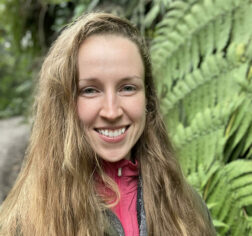 Evelyn Reilly is originally from Minneapolis, Minnesota. After attending the U of M – Twin Cities as an undergraduate (B.S. Food Systems ’15), She spent time traveling, living in Morocco, and working as a cook, freelance writer, and cheesemonger. She returned to the U in 2019 to earn a Master’s in Applied Plant Science with a focus on agronomy and agroecology. Evelyn’s thesis work assessed intermediate wheatgrass (Kernza) as a profitable option for crop production on land vulnerable to nitrate leaching. Her interest in sustainable agriculture is driven by a love for nature, especially birds.
Evelyn Reilly is originally from Minneapolis, Minnesota. After attending the U of M – Twin Cities as an undergraduate (B.S. Food Systems ’15), She spent time traveling, living in Morocco, and working as a cook, freelance writer, and cheesemonger. She returned to the U in 2019 to earn a Master’s in Applied Plant Science with a focus on agronomy and agroecology. Evelyn’s thesis work assessed intermediate wheatgrass (Kernza) as a profitable option for crop production on land vulnerable to nitrate leaching. Her interest in sustainable agriculture is driven by a love for nature, especially birds.
Green Lands Blue Waters is based at the Minnesota Institute for Sustainable Agriculture at the University of Minnesota
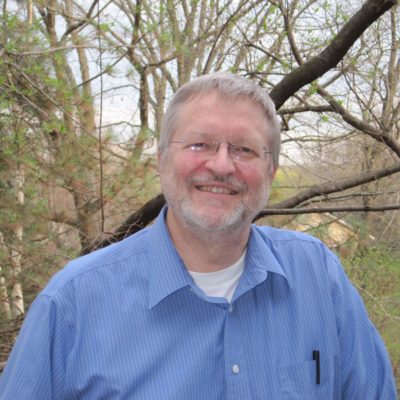 Wayne is a Professional Agricultural Engineer in Minnesota. He is retired from the Minnesota Pollution Control Agency after 43 years where he served in many roles around agriculture and the environment especially water quality. In addition to serving as Agricultural Policy Director for 8 years he retired as Principal Engineer responsible for the development of Minnesota’s Nutrient Reduction Strategy and served as Minnesota representative to the Gulf of Mexico Hypoxia Task Force. Wayne’s primary interest in the GLBW is to increase understanding and accountability to the inter-relationships of public and private programs and their impact on knowledge, attitudes and behaviors, demonstrated by the adoption of continuous living cover on the land and ultimately improved water quality and climate.
Wayne is a Professional Agricultural Engineer in Minnesota. He is retired from the Minnesota Pollution Control Agency after 43 years where he served in many roles around agriculture and the environment especially water quality. In addition to serving as Agricultural Policy Director for 8 years he retired as Principal Engineer responsible for the development of Minnesota’s Nutrient Reduction Strategy and served as Minnesota representative to the Gulf of Mexico Hypoxia Task Force. Wayne’s primary interest in the GLBW is to increase understanding and accountability to the inter-relationships of public and private programs and their impact on knowledge, attitudes and behaviors, demonstrated by the adoption of continuous living cover on the land and ultimately improved water quality and climate.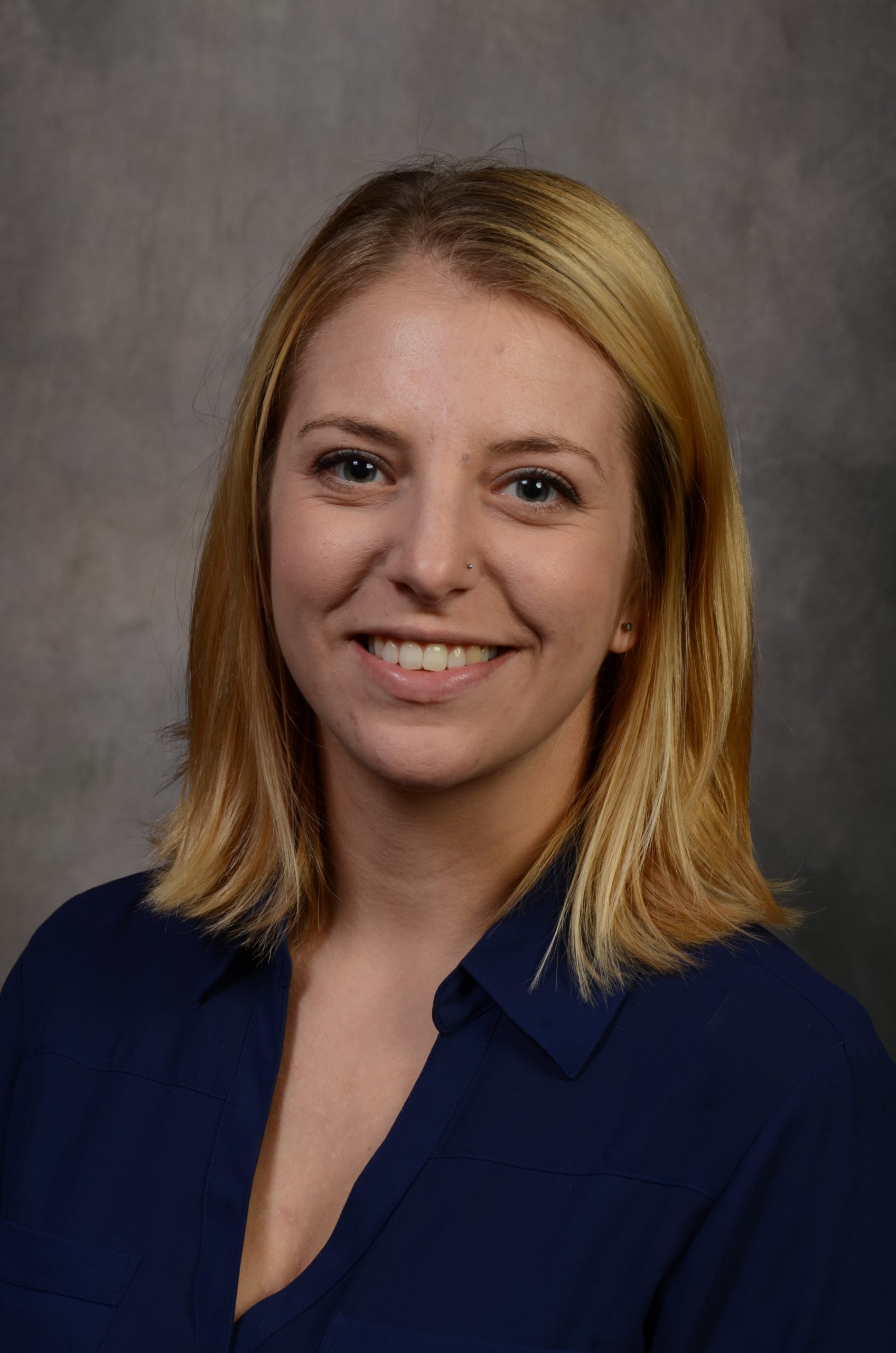 Investigating intensive integrated tree-forage-livestock systems in order to raise livestock more sustainably, and specifically, understanding livestock interactions with forage, crops and trees in silvopasture systems. Conway’s primary goal is to develop a research program investigating the logistical, economic, environmental, and social dynamics of silvopasture systems in Missouri and the Midwest through the lens of efficient and responsible animal production. We seek to better understand how to optimize animal performance and nutrition using silvopastoral production practices while maintaining or enhancing ecosystem services and tree performance. A systems-level approach will be used to measure animal performance, health and welfare, and environmental impact. With this information, her goal is to develop scientifically-supported recommendations to producers to support silvopasture adoption.
Investigating intensive integrated tree-forage-livestock systems in order to raise livestock more sustainably, and specifically, understanding livestock interactions with forage, crops and trees in silvopasture systems. Conway’s primary goal is to develop a research program investigating the logistical, economic, environmental, and social dynamics of silvopasture systems in Missouri and the Midwest through the lens of efficient and responsible animal production. We seek to better understand how to optimize animal performance and nutrition using silvopastoral production practices while maintaining or enhancing ecosystem services and tree performance. A systems-level approach will be used to measure animal performance, health and welfare, and environmental impact. With this information, her goal is to develop scientifically-supported recommendations to producers to support silvopasture adoption.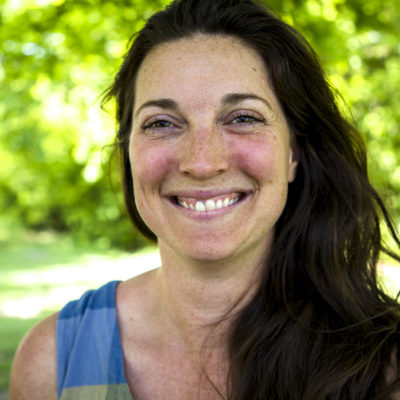 Meghan is a passionate advocate of grazing and pasture-based livestock systems with over a decade of experience supporting farmers through roles in the non-profit and cooperative extension sectors. She addresses barriers to getting more livestock on the land through advising on livestock integration in cropping systems, regenerative grazing and meat marketing. Meghan works for Nofence, a Norwegian virtual fencing company, to spearhead the adoption of virtual fence technology in the United States. While not at work, you can find Meghan out on the prairie or in the woods with her husband and son. They use goats and sheep to reclaim Iowa’s native oak savanna while working to build community in their rural Iowa town.
Meghan is a passionate advocate of grazing and pasture-based livestock systems with over a decade of experience supporting farmers through roles in the non-profit and cooperative extension sectors. She addresses barriers to getting more livestock on the land through advising on livestock integration in cropping systems, regenerative grazing and meat marketing. Meghan works for Nofence, a Norwegian virtual fencing company, to spearhead the adoption of virtual fence technology in the United States. While not at work, you can find Meghan out on the prairie or in the woods with her husband and son. They use goats and sheep to reclaim Iowa’s native oak savanna while working to build community in their rural Iowa town.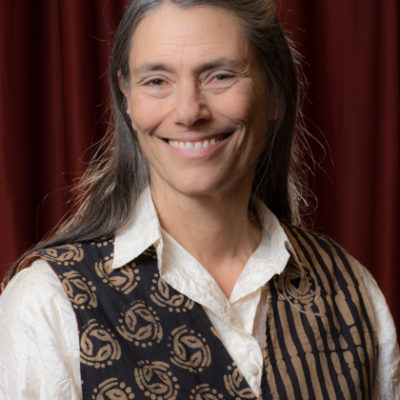 Diane Mayerfeld is the sustainable agriculture coordinator for University of Wisconsin-Madison Division of Extension. She helps educators and farmers learn about sustainable agriculture techniques and resources, including grants from the USDA Sustainable Agriculture Research and Education (SARE) program. She researches silvopasture in Wisconsin.
Diane Mayerfeld is the sustainable agriculture coordinator for University of Wisconsin-Madison Division of Extension. She helps educators and farmers learn about sustainable agriculture techniques and resources, including grants from the USDA Sustainable Agriculture Research and Education (SARE) program. She researches silvopasture in Wisconsin.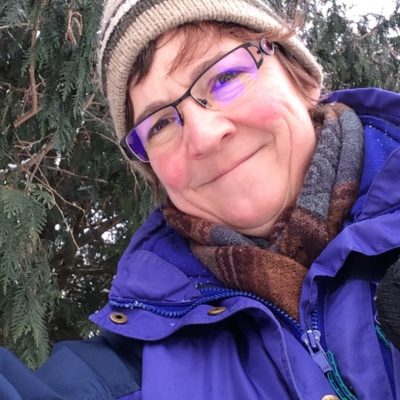 Previously, Erin served for 14 years as Executive Director of the University of Minnesota Southeast Regional Sustainable Development Partnership (also called the Experiment in Rural Cooperation). She has over 20 years of experience and training in sustainable agriculture, local food systems, food access, natural resource conservation, clean energy, community engagement and development, and facilitating cross-sector work groups and networks. Erin holds an MS in Sustainable Agriculture from Iowa State University, with an emphasis on economics and external costs, and is a geographer at heart with a BS in Geography from the University of Illinois and past experience as a cartographer and GIS analyst.
Previously, Erin served for 14 years as Executive Director of the University of Minnesota Southeast Regional Sustainable Development Partnership (also called the Experiment in Rural Cooperation). She has over 20 years of experience and training in sustainable agriculture, local food systems, food access, natural resource conservation, clean energy, community engagement and development, and facilitating cross-sector work groups and networks. Erin holds an MS in Sustainable Agriculture from Iowa State University, with an emphasis on economics and external costs, and is a geographer at heart with a BS in Geography from the University of Illinois and past experience as a cartographer and GIS analyst.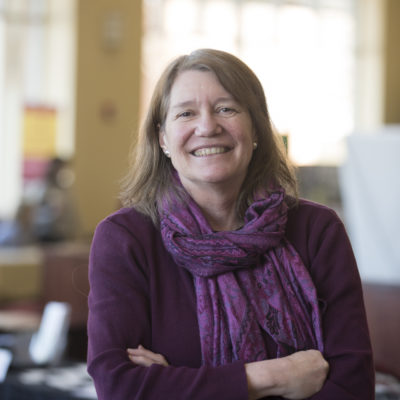 I am the Executive Director of the Minnesota Institute for Sustainable Agriculture (MISA). MISA is a joint venture between College of Food, Agricultural and Natural Resource Sciences, University of Minnesota Extension, and four community-based non-profit organizations. MISA’s purpose is to bring together the interests of the agricultural community to develop and promote the long-term viability of agricultural systems. My responsibilities include oversight and program support for the activities of MISA as determined by a Board of Directors. My research work is focused on sustainable food systems, and identifying ways of increasing diverse team participation in research, education, and outreach programs. I am on the graduate faculty of the Applied Plant Sciences program, the Conservation Biology program, and the Interdisciplinary Center for the Study of Global Change.
I am the Executive Director of the Minnesota Institute for Sustainable Agriculture (MISA). MISA is a joint venture between College of Food, Agricultural and Natural Resource Sciences, University of Minnesota Extension, and four community-based non-profit organizations. MISA’s purpose is to bring together the interests of the agricultural community to develop and promote the long-term viability of agricultural systems. My responsibilities include oversight and program support for the activities of MISA as determined by a Board of Directors. My research work is focused on sustainable food systems, and identifying ways of increasing diverse team participation in research, education, and outreach programs. I am on the graduate faculty of the Applied Plant Sciences program, the Conservation Biology program, and the Interdisciplinary Center for the Study of Global Change. Jeri Neal, consultant – Retired after 22 years with the Leopold Center for Sustainable Agriculture in Iowa as grants manager and ecological systems and research program leader; currently consulting in areas of sustainability, agriculture, ecology, grants, funding and outreach.
Jeri Neal, consultant – Retired after 22 years with the Leopold Center for Sustainable Agriculture in Iowa as grants manager and ecological systems and research program leader; currently consulting in areas of sustainability, agriculture, ecology, grants, funding and outreach. 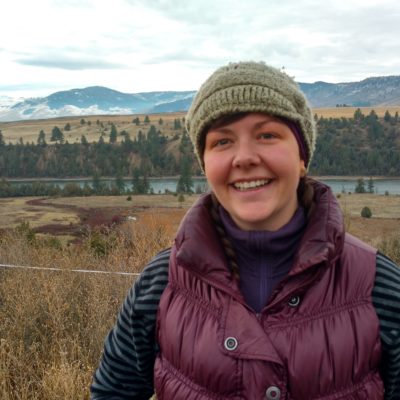 Tessa Peters is the Director of Crop Stewardship for The Land Institute. In this role, she aspires to provide guidance as Kernza® Perennial Grain and other crops leave the realm of pure research and begin to end up on the plates of consumers across the globe. Her work with researchers, growers, processors, and food makers helps steward the transition from annual to perennial agriculture. She has a PhD from the University of Wisconsin – Madison in Plant Breeding and Plant Genetics and works remotely from Laramie, Wyoming. She believes that the long arc of annual agriculture is ready for cultural, environmental, and economic shifts that ensure a just, perennial future for humans.
Tessa Peters is the Director of Crop Stewardship for The Land Institute. In this role, she aspires to provide guidance as Kernza® Perennial Grain and other crops leave the realm of pure research and begin to end up on the plates of consumers across the globe. Her work with researchers, growers, processors, and food makers helps steward the transition from annual to perennial agriculture. She has a PhD from the University of Wisconsin – Madison in Plant Breeding and Plant Genetics and works remotely from Laramie, Wyoming. She believes that the long arc of annual agriculture is ready for cultural, environmental, and economic shifts that ensure a just, perennial future for humans. 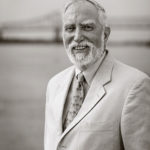 R. Eugene (Gene) Turner is a faculty member of the Department of Oceanography and Coastal Sciences at Louisiana State University. He received a B.A. degree from Monmouth College (Ill.), a M.S. degree from Drake University (Biology), and a Ph.D. from the University of Georgia (Ecology). He can’t seem to make up his mind if he is an oceanographer, wetland ecologist or landscape analyst. He has been working on the scientific aspects of the low oxygen (hypoxic) zone off the Mississippi River with Nancy Rabalais and colleagues for 45 years, as well as wetland conservation, restoration and management. He spends much of his time working on land use issues and water quality within the Mississippi River watershed.
R. Eugene (Gene) Turner is a faculty member of the Department of Oceanography and Coastal Sciences at Louisiana State University. He received a B.A. degree from Monmouth College (Ill.), a M.S. degree from Drake University (Biology), and a Ph.D. from the University of Georgia (Ecology). He can’t seem to make up his mind if he is an oceanographer, wetland ecologist or landscape analyst. He has been working on the scientific aspects of the low oxygen (hypoxic) zone off the Mississippi River with Nancy Rabalais and colleagues for 45 years, as well as wetland conservation, restoration and management. He spends much of his time working on land use issues and water quality within the Mississippi River watershed.